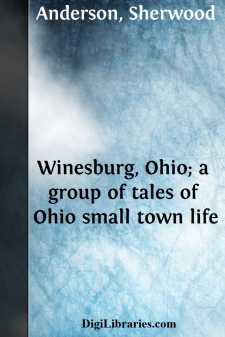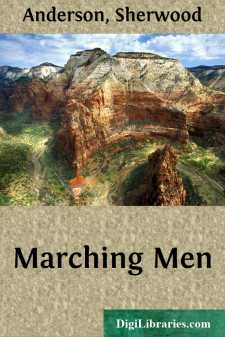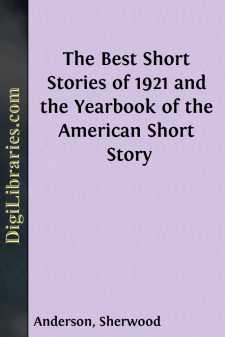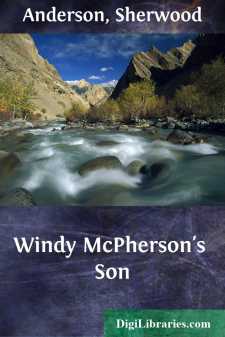Categories
- Antiques & Collectibles 13
- Architecture 36
- Art 48
- Bibles 22
- Biography & Autobiography 815
- Body, Mind & Spirit 144
- Business & Economics 28
- Children's Books 18
- Children's Fiction 14
- Computers 4
- Cooking 94
- Crafts & Hobbies 4
- Drama 346
- Education 58
- Family & Relationships 59
- Fiction 11834
- Games 19
- Gardening 17
- Health & Fitness 34
- History 1378
- House & Home 1
- Humor 147
- Juvenile Fiction 1873
- Juvenile Nonfiction 202
- Language Arts & Disciplines 89
- Law 16
- Literary Collections 686
- Literary Criticism 179
- Mathematics 13
- Medical 41
- Music 40
- Nature 179
- Non-Classifiable 1768
- Performing Arts 7
- Periodicals 1453
- Philosophy 65
- Photography 2
- Poetry 896
- Political Science 203
- Psychology 44
- Reference 154
- Religion 515
- Science 126
- Self-Help 85
- Social Science 83
- Sports & Recreation 34
- Study Aids 3
- Technology & Engineering 59
- Transportation 23
- Travel 463
- True Crime 29
Sherwood Anderson
Sherwood Anderson was an influential American writer best known for his short story collection "Winesburg, Ohio" (1919), which provides a deeply insightful look into small-town life and the psychological complexities of its inhabitants. Born in 1876 in Camden, Ohio, Anderson's work is characterized by its focus on the inner lives of ordinary people, using a straightforward, unadorned prose style. His influence extended to notable writers like Ernest Hemingway and William Faulkner, who admired his exploration of modernist themes and narrative techniques.
Author's Books:
Sort by:
I must have been no more than fifteen or sixteen years old when I first chanced upon Winesburg, Ohio. Gripped by these stories and sketches of Sherwood Anderson's small-town "grotesques," I felt that he was opening for me new depths of experience, touching upon half-buried truths which nothing in my young life had prepared me for. A New York City boy who never saw the crops grow or spent...
more...
CHAPTER I Hugh McVey was born in a little hole of a town stuck on a mud bank on the western shore of the Mississippi River in the State of Missouri. It was a miserable place in which to be born. With the exception of a narrow strip of black mud along the river, the land for ten miles back from the town—called in derision by river men "Mudcat Landing"—was almost entirely worthless and...
more...
CHAPTER I Uncle Charlie Wheeler stamped on the steps before Nance McGregor's bake-shop on the Main Street of the town of Coal Creek Pennsylvania and then went quickly inside. Something pleased him and as he stood before the counter in the shop he laughed and whistled softly. With a wink at the Reverend Minot Weeks who stood by the door leading to the street, he tapped with his knuckles on the...
more...
THE DUMB MAN There is a story.—I cannot tell it.—I have no words. The story is almost forgotten but sometimes I remember. The story concerns three men in a house in a street. If I could say the words I would sing the story. I would whisper it into the ears of women, of mothers. I would run through the streets saying it over and over. My tongue would be torn loose—it would rattle against my teeth....
more...
INTRODUCTION I was talking the other day to Alfred Coppard, who has steered more successfully than most English story writers away from the Scylla and Charybdis of the modern artist. He told me that he had been reading several new novels and volumes of short stories by contemporary American writers with that awakened interest in the civilization we are framing which is so noticeable among English...
more...
BOOK I CHAPTER I At the beginning of the long twilight of a summer evening, Sam McPherson, a tall big-boned boy of thirteen, with brown hair, black eyes, and an amusing little habit of tilting his chin in the air as he walked, came upon the station platform of the little corn-shipping town of Caxton in Iowa. It was a board platform, and the boy walked cautiously, lifting his bare feet and putting them...
more...







